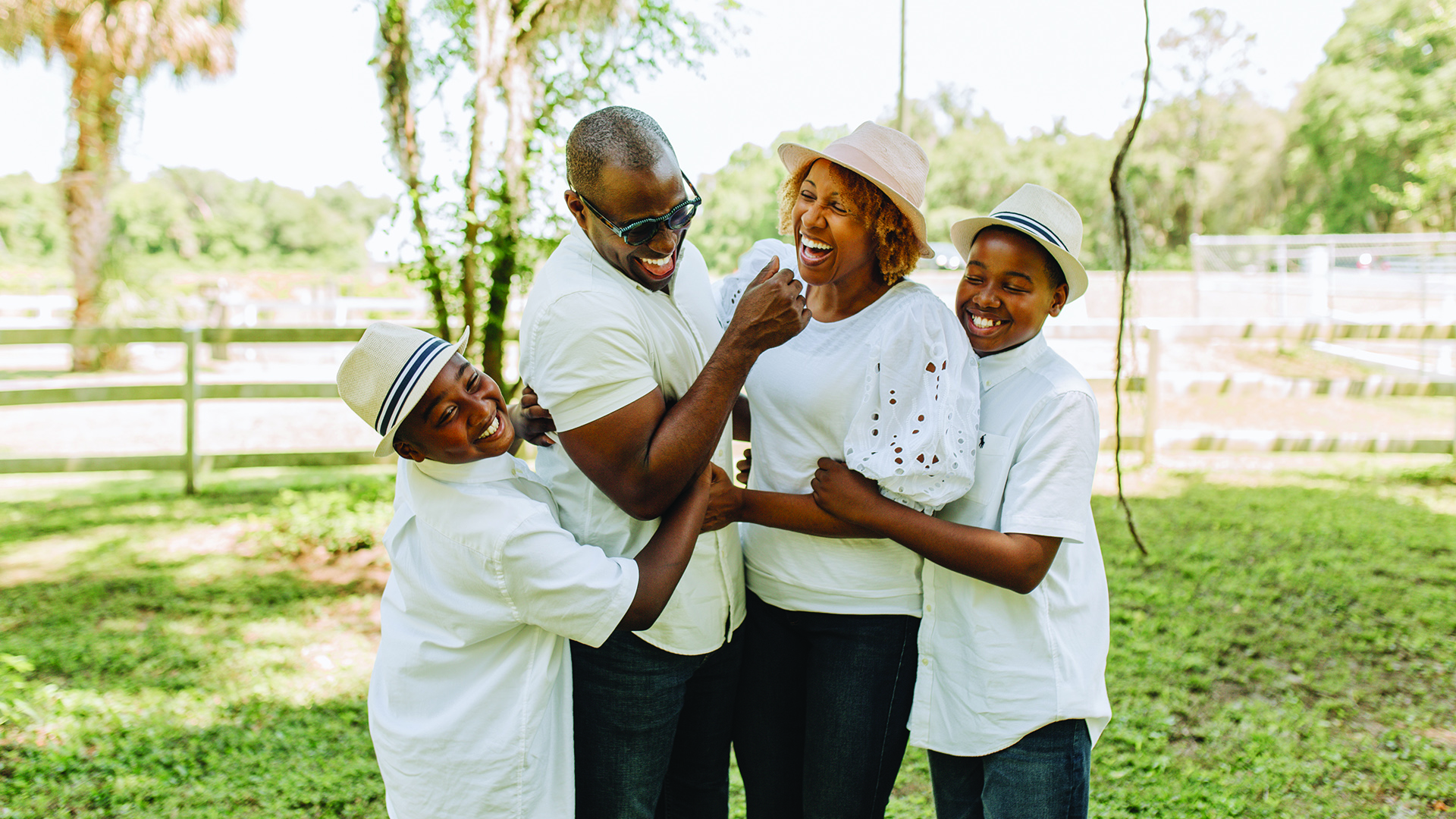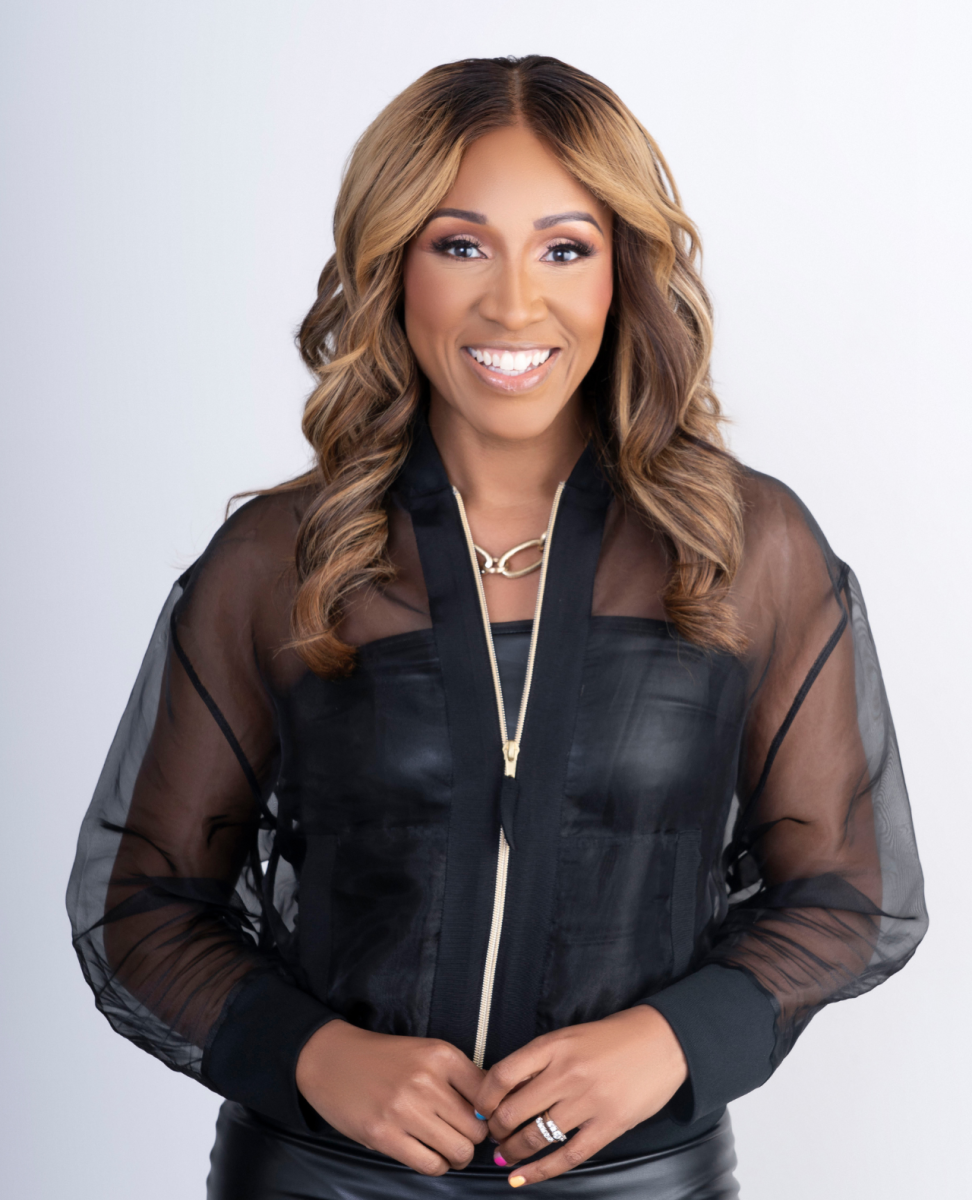
Healthy Comparison Inspires Us; Toxic Comparison Expires Us
Nona Jones, international speaker, preacher, and author of Killing Comparison, shares how she came up with the title of her book and why embracing sufficiency instead of grieving deficiency will lead to healthy mindset of comparison.
You can listen to this conversation with Nona on our podcast, Work, Love, Pray! Listen below or click here to find your preferred listening platform.
How did you come up with the title “Killing Comparison” for your book?
In some ways, it’s a double entendre. Killing Comparison is the idea that we do need to kill comparison, right? But it’s also the idea that comparison kills. Here’s the thing: comparison is actually neutral. We compare ourselves because we have eyes and we see where we are in comparison to other people. But comparison can show up in one of two forms. The first form of comparison is healthy comparison. That’s the type of comparison that inspires us to be better. I’ve lost and maintained a 100-pound weight loss for the last 11 years. When I was on my initial weight loss journey, I would watch YouTube videos of other women who were at a similar weight who had lost the weight and they inspired me to keep going. I would compare myself to them, because I saw in them someone I wanted to become.
The other type or expression of comparison is toxic comparison. That is the comparison where I see somebody else’s success as my failure or my loss. Where healthy comparison inspires us, toxic comparison expires us. Comparison can cause the death of purpose, vision, confidence, and courage if we don’t know how to steward it in a healthy way. That’s where the title of my book came from.
How can someone detox from toxic comparison?
In order to detox from toxic comparison, the first step we have to take is to be willing to acknowledge and admit that we are insecure. This first step is absolutely critical, yet it’s also the one that gets overlooked because we spend so much time denying our insecurity that we don’t actually invest energy in just exploring what the source of our insecurity is.
The second step is learning to reframe insecurity when you start to feel it creep in. For example, instead of seeing your friend getting an award as an affront on your personal worthiness, you see it as an opportunity to affirm and celebrate that friend for what they’ve accomplished.
How can we train our hearts to celebrate sufficiency instead of grieving deficiency?
Let me start with talking about deficiency. Having worked at Meta for six years, one of the things I know to be true is that people don’t typically post the reality of their life on social media. They post the fiction. They’ll post the day they got the new car, but they don’t post when it was repossessed. They post the day they got engaged, but they don’t post the day they got divorced. When we only see the “surface fiction” of our social media feeds, we start to compare the reality of our lives to the fiction that other people post.
This can lead to a manufactured deficiency, because you’re comparing your reality to something that’s not even real. If you feel inadequate or not good enough, ask yourself, ‘In comparison to what?’ We often compare ourselves to something that is exaggerated and not even real.
The idea of sufficiency, though, is rooted in Jeremiah 1 and 5. Within these chapters is a verse that is often used to support the idea that life begins at conception and the womb is sacred. But I think the verse actually goes so much deeper and reveals that before God formed you in the womb, He knew you. Before the sperm even met the egg, you already had purpose. You had identity. God knew who you were.
You have your sufficiency in the fact that before your mother and father even knew each other, God already decided that you were necessary for creation. It really doesn’t matter what another human being says about you. The truth is God decided that you were necessary. Derive your sense of sufficiency from that. We are called and set apart by the God of a universe. If we don’t get the promotion, if we don’t get the award, if we don’t get the degree, if we don’t have the bank account, that’s incredible. None of that matters because God knew you wouldn’t achieve those things, and He still decided that you were necessary for creation. That’s where I take my sense of sufficiency from, and that’s where I would encourage others to take it from, as well.
Do you have any other favorite resources that someone could use to help find and build their personal confidence?
When I was on my journey to freedom from toxic comparison, there were a couple of resources I used that I would recommend. One unlikely resource that I highly recommend is studying the life of Jonathan, King Saul’s son. Many people know about the epic comparison issue between Saul and David and how Saul was jealous of David. But there’s actually a third person in that story that doesn’t get a lot of airtime, and that is Saul’s son, Jonathan. David was more of a threat to Jonathan than Saul, and yet Jonathan and David were best friends. That’s why I recommend that people study that relationship because I think that in Jonathan’s life, we learn how it is to live a secure, confident life where you’re not threatened by another person’s success.
There’s also a really great book that I love by Joyce Meyer called Approval Addiction. I read that book many, many years ago, and I think it’s a powerful book for those of us who are perfectionists. Many times, perfectionism is rooted in some form of trauma. You have to get to the root of why you feel like you need people’s approval, or why you need to be chosen, selected, or invited.
Social media is blamed a lot for creating insecurity when in fact, while it does expose our insecurity, it’s not the source of our insecurity. I say that because two people can see the exact same post, and one person can walk away from it inspired while the other person can walk away from it feeling like they’re not good enough. Approach social media being cognizant of the fact that if social media does trigger insecurity, it’s because there is something that you need to explore within yourself.

Nona Jones is an international speaker, preacher, author, and the head of global faith-based partnerships at Facebook. Previously, Nona held executive leadership roles across the private, public, and nonprofit sectors. A graduate of the Presidential Leadership Scholars Program, Nona was named one of Essence magazine’s Under 40 Women to Watch and Florida Trend Magazine as one of Florida’s “30-Something All Stars.” She is currently President of the Gainesville (FL) Chapter of The Links, Incorporated and serves on the University of Florida Digital Advisory Council. She most recently served as Secretary of the Florida Juvenile Justice Association Board of Directors and on the Georgia Statewide Human Trafficking Task Force. She is a graduate of Leadership Florida and the Presidential Leadership Scholars Program, a unique leadership development initiative led by President Bill Clinton and President George W. Bush. Nona and her husband lead a church together in Gainesville, Florida. You can follow Nona at www.nonajones.com.